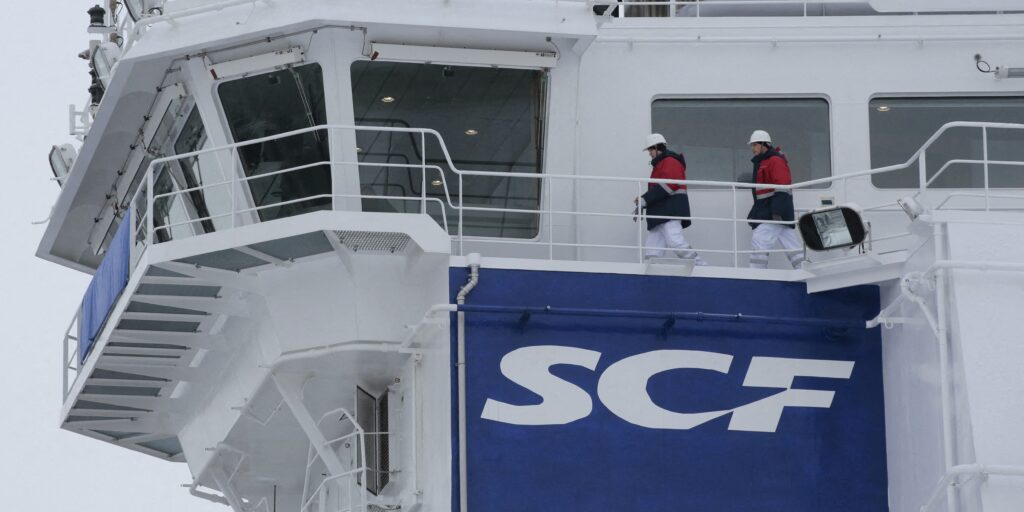- All of India's refineries are rejecting Russian crude that was shipped on Sovcomflot tankers, Bloomberg reported.
- The state-run shipping firm has been the target of a number of US sanctions since December.
- Previously Sovcomflot accounted for around 15% of Urals crude shipped to India.
Crude carried by the Russian tanker firm Sovcomflot is no longer accepted in India, as refineries in the country are moving away from sanctioned entities, Bloomberg reported.
Since Sovcomflot vessels have been the target of numerous US sanctions, all of India's refiners are now rejecting its cargo. To do this, each ship's ownership is inspected and scrutinized, sources told the outlet.
In late February, the US accused Sovcomflot, a state-run firm, of breaching the Group of Seven's $60 price cap on Russian crude; sanctions also extended to 14 crude tankers belonging to the company.
That followed after 24 vessels were targeted by the US Treasury in mid-December, belonging to a company tied to Sovcomflot.
Previously, Sovcomflot has accounted for around 15% of Urals crude shipments into India, Bloomberg said.
But while about 4.7 million barrels of the Russian mix were imported by the firm in February, that number has fallen to 1.5 million so far in March.
Sovcomflot's rejection in India now signals a broader trade shift, as New Delhi aims to avoid falling into Western crosshairs.
"When Russian prices don't conform, we buy from Iraq, the UAE, Saudi Arabia," Minister of Petroleum and Natural Gas Hardeep Singh Puri said in January.
It's a turnaround from last year, when the country became the world's biggest importer of Russian seaborne crude. That's as Moscow's 2022 invasion of Ukraine barred it from traditional Western markets, and forced it to offer discounted oil to new buyers.
But with the West stepping up sanctions enforcement this year, Sovcomflot has acknowledged strained operations. For Indians, it's adding to freight costs, as there are less tankers available to transport Russian crude.
That means less of a discount: in February, pricing on Urals crude has risen $4 per barrel.
